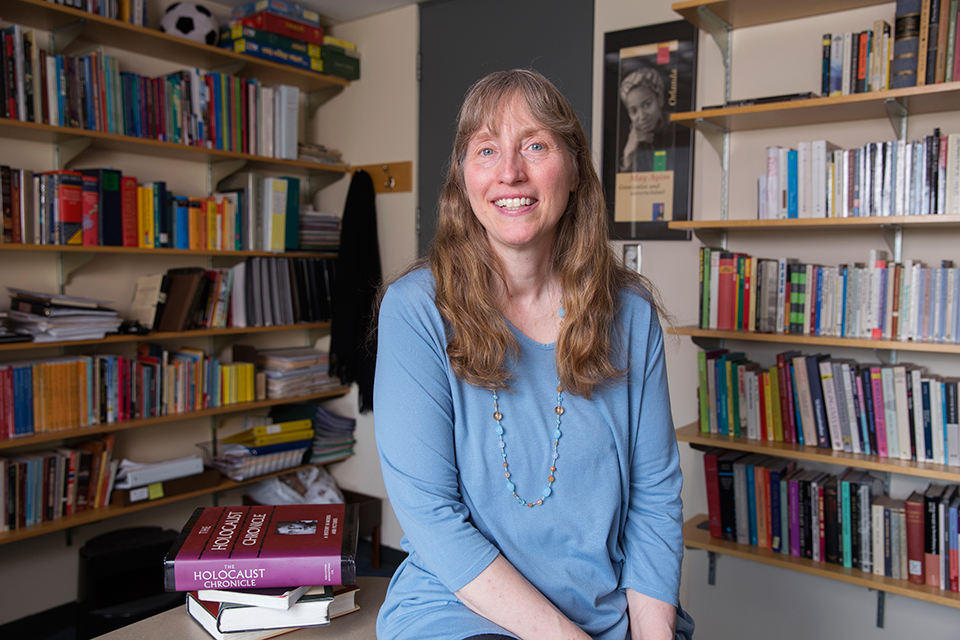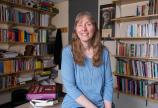Where education meets emotion
- Brad Buie

Helga Thorson helps students learn about the past and its relevance to the present
Helga Thorson is familiar with students feeling fazed at the end of four weeks of study of the Holocaust and its memorialization. Since 2011, she has led students at the I-witness Field School. Students are totally immersed in the material without distraction, which separates the field school experience from the classroom. Then there is the subject matter: the Holocaust and humanity’s immense responsibility to remember, even as those with first-hand knowledge are passing on.
“You come to the subject matter from an intellectual perspective but also on an emotional level,” says Dr. Thorson, Associate Professor and Chair of the Department of Germanic and Slavic Studies. “When you put those things together, it makes the educational difference.”
“Throughout the duration of this course we have made memories around memories,” a student blogged on the final day of the 2016 I-witness Field School. “Oh my, what does this mean for the layers of history and the layers of memory we have studied?”
The first week of the field school takes place at UVic. Students discuss assigned readings and each chooses a memorial site that they will guide their classmates through. Thorson also arranges for Holocaust survivors from the community to meet with the group. After gaining the knowledge from secondary and precious first-hand sources, the students then travel to Central Europe—Berlin, Krakow, Budapest, Vienna and Linz—to spend three weeks exploring Holocaust sites, museums and monuments.
The students learn about the past and its relevance to the present. They acquire an understanding of hatred and its consequences in the stages of genocide. They meet with fellow students from Europe and discuss their relationship to the Holocaust—what they learned or didn’t learn in school or from their families, and how their relationship to the Holocaust changes over time.
“Students also become so much bolder as researchers,” says Thorson. “Having been to these sites, they feel confident disagreeing with the authors on their reading list.”
On their return to Canada, students must give a public presentation on their experience. For Thorson, it is important that the knowledge is shared with the public, including the Jewish community and donors who help with students’ travel costs.
Students often express a commitment to keep the memory of their experience alive and act on it in some way. For example, Thorson and some students have begun a digital mapping project to track the fates of Jewish residents of a single street, Servitengasse, in Vienna in 1938 when Nazi Germany occupied Austria. The project originated a few years ago with Vienna resident Barbara Kintaert who became curious about who had lived in her apartment building during that period.
Undergraduate student Giorgia Ricciardi is part of the team diligently recording these stories. She will participate in the I-witness Field School this year and serve as a guide to her cohort when they visit Servitengasse. After completing her undergraduate degree, Ricciardi will continue on into UVic’s new master’s stream in Holocaust studies, the only one of its kind in Canada.
“I believe that knowledge on the Holocaust is crucial in combating the hatred we see all around us today,” says Ricciardi. “I plan on using what I learn in order to educate and inspire those around me to stand against hatred."
Three historical sites Thorson recommends for a visit:
- The Weissensee Jewish cemetery in Berlin, Germany
- The Servitengasse in Vienna, Austria
- The shoes on the Danube Bank memorial site in Budapest, Hungary

